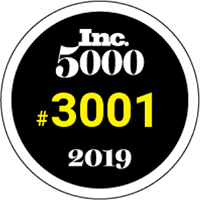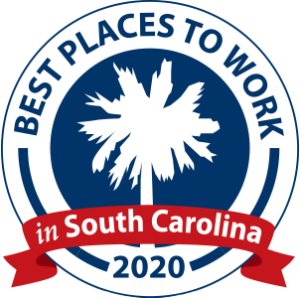Our CEO, Andrew Kurtz launched Kopis in May of 1999, and has continued to grow the company for 21 years and counting. He inspires every employee to uphold Kopis’ core values in everything they do, which paves the way for a strong company culture to go along with it. His colleagues describe him as welcoming, and his door is always open.
Andrew Kurtz grew up in Buffalo, NY until his dad got transferred to Tallahassee, FL right before Kurtz started high school. It was a huge culture shock and hard being the new kid, but the move led him to Furman University. He knew he wanted to go to school somewhere in between New York and Florida, pulled out a map and circled the region in the middle which happened to be the Carolina’s. After going to small private schools his whole life, he knew he wanted to keep the trend going with a small private college. Among those on his list was Furman University, and that’s where he ended up.
Going into Furman, Kurtz wanted to double major in business and computer science, but his mind was completely changed after taking his first accounting class. It made total sense to him, he fell in love with it, and switched his major.
His first internship was with his father, who worked in accounting, where he took over managing the company’s records and turning it into microfilm. This was not what he imagined accounting would be like and quickly tired of it. However, the summers got better over time with the introduction of a new IBM PC. After unsuccessfully trying to make the computer work, they decided to give Kurtz a shot. His “job” became trying to figure out the computer, which came to him naturally.
Kurtz wasn’t particularly self-motivated when looking for jobs after graduation. Thankfully, the Furman accounting department was heavily involved in this process. They made the process virtually effort free by scheduling and setting up interviews for them. It never crossed his mind to look outside Greenville, and that’s where he got his first job after graduation.
He was a “staff accountant” where he did auditing for 18 months. The next job he was offered he took because he just wanted to get out of auditing. He was asked to manage the accounting for a small startup, which is where he honed in on some of his programming skills. He wrote a system to track their cost analysis, and after using this program, he discovered the company wasn’t doing very well. “I learned some programming skills from my internship, but most of it was self-taught through reading books and asking questions”.
Himself and one other person in the company decided to get out while they could and start their own company together. It was the same kind of company as the one he left, but they thought they could do it better, especially with the use of the cost analysis program Kurtz wrote. Going through college he never saw himself starting his own company.
He was about 24 when he started his first business. He says “it was the right time because I didn’t have a wife or kids or mortgage to worry about”. In the beginning, there wasn’t much accounting to do, so in order to eat and put food on the table, he took up programming more full-time. He started doing software development and his partner did design and engineering for the computers that run the machinery on the plant floor.
Kurtz was making software that companies needed but couldn’t find. They eventually split and went their own directions, and that’s how Kopis started. Kopis came out of focusing on building and writing software. He wanted to write a program that took data and helped people make better and smarter decisions. Today, Kopis is a successful custom software development company.
Over the years, his role has changed as Kopis has grown. He made the decision to stop doing the thing he loved most, programming, for the sake of the business. He realized they needed a leader more than a programmer, someone to hold people accountable and making sure they have the support they need to reach their goals.
Company culture and core values are very important to Kurtz. He expresses “that it becomes more and more challenging to maintain as the number of employees continues to grow. It is important to hire individuals who don’t need to be micromanaged to thrive”. Part of the company culture is having the opportunity to work remotely when needed. Kurtz says “as long as all of the work is done by the deadlines, everyone is encouraged to work where and how they are most productive”.
Family is very important to Kurtz, which is why his work days aren’t always the typical 9-5. He makes it a point to never miss his daughter’s swim meets or soccer games. This could mean leaving the office early one day and working late the next, as long as all of the hours are put in. In his free time he enjoys playing ice hockey, reading, and playing war strategy games such as Combat Commander, War Plan, and Crusader Kings.
The goal for Kopis is to become a bigger regional player, and maybe even national. Kopis is doing totally different technology than they did 10 years ago. Kurtz says, “technology is always going to change and evolve, and we need to make sure we evolve and change with it”.


